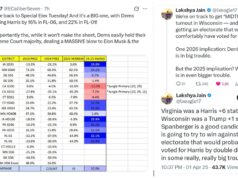( – promoted by lowkell)
 Rooftop solar energy makes up a tiny fraction of the total electricity produced in America, but already utilities worry about a day when large numbers of their customers won’t need them any more. As renewable energy costs continue to tumble and the technology of battery storage improves, many residents and businesses may abandon their power utility to go it alone or form microgrids within their communities to control their own power.
Rooftop solar energy makes up a tiny fraction of the total electricity produced in America, but already utilities worry about a day when large numbers of their customers won’t need them any more. As renewable energy costs continue to tumble and the technology of battery storage improves, many residents and businesses may abandon their power utility to go it alone or form microgrids within their communities to control their own power.
Some utilities understand that this is the future and are looking for ways to turn these trends to their advantage. Others are doing everything they can to protect their turf, and progress (and the environment) be damned. They figure they can’t wind up on the wrong side of history if they stop history from happening.
Hence the attempt to throttle solar while it’s still little. Caps on system sizes, caps on total amounts of distributed generation, prohibitions against third-party power purchase agreements, restrictions on net metering: all of these are efforts to keep solar too small to matter, and too small to achieve the economies of scale that could lead to an upending of the central utility model.
The latest effort to squelch solar is through standby charges: fees imposed on net metering customers that compensate the utility for “standing by,” ready to sell grid-produced energy at night and on cloudy days. In 2012 in Virginia, Dominion Virginia Power won the right to charge customers with large residential systems (10-20 kilowatts) up to $60 per month-a charge that destroyed this market segment. This summer Dominion pressed its advantage, indicating in a submission to regulators that it will likely seek more standby charges on a broader class of solar customers.
Note that Virginia has less than 15 megawatts (MW) of solar installed across the state. Dominion Power alone has around 19,000 MW of coal, gas and nuclear. So the notion that net metering by solar customers has any perceptible effect on the grid or other customers is silly. The point of Dominion’s stand-by charges is to stifle the solar market, not cover costs.
This same debate played out this year in Arizona, which saw its solar industry install 719 MW in 2012-still a tiny percentage of that state’s total energy supply, but one that is growing fast enough to warrant the discussion. Last week the public utilities commission agreed to allow Arizona Public Service Company (APS) to charge its residential solar customers an average of $5 per month. The utility treated the ruling as a win, and indeed the charges might eventually add up to enough to cover APS’s attorney fees in the case. That’s more than can be said about Dominion’s standby charges.
Meanwhile the conservative American Legislative Exchange Council (ALEC) has gotten into the act, drafting a model resolution insisting that net metering customers should have to pay their “fair share” of utility costs through measures like standby charges. Not incidentally, Dominion Power is a member of ALEC and sits on the energy and environment task force next to the fossil fuel shills from Heartland Institute.
But the “fair share” argument is bogus. Utilities weren’t set up to ensure Americans all paid their “fair share” of the costs of the electric grid. If they were, there would still be mountain communities without power today. Residents of cities and towns subsidized the cost of running power lines to far-flung rural homes inhabited by people who could never have afforded their “fair share” of this infrastructure.
Even today, city dwellers pay more than their “fair share” of transmission costs to subsidize people like me who live in leafy, sprawling suburbs and less-populated parts of the state. Anybody voting for an ALEC-style resolution about “fair shares” had better be willing to stick it to suburban and rural consumers.
There are other ways electricity rates aren’t “fair.” Dominion’s residential rates are structured so people who use less electricity pay more per kilowatt hour than those who use more-again, making it roughly a transfer of wealth from urban apartment dwellers to those with larger or less efficient homes elsewhere. The utility’s goal is to encourage the use of electricity, and compete more effectively with the gas company for heating. People paying their “fair share” just doesn’t enter into it.
And while we’re at it, if we were serious about subsidies we’d slap a tax on electricity made from fossil fuels to reflect the costs they impose on society. Asthma, heart disease, mercury poisoning, groundwater contamination, and of course, the dumping of carbon into the atmosphere-these are all costs of fossil fuel that ought to be included in power bills to make sure everyone is paying their “fair share.” People who install solar panels deserve a thank-you for their service to society, not standby charges based on bogus “fair share” claims.
The argument for standby charges is, pure and simple, an attempt by entrenched monopolies to block competition. The “fair share” argument is a red herring from utilities that don’t want a fair fight. And with good reason: they’re going to lose.



 Sign up for the Blue Virginia weekly newsletter
Sign up for the Blue Virginia weekly newsletter








